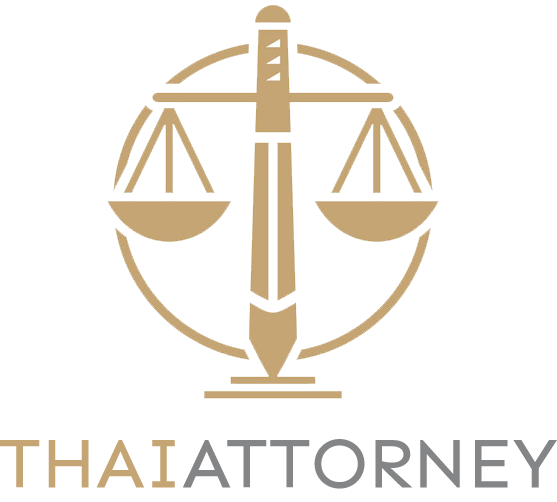Personal injury claims play a vital role in Thailand’s legal system by providing individuals with a lawful means to seek compensation and justice when they suffer harm due to the negligence, recklessness, or intentional acts of others. As Thailand continues to experience rapid economic development, urbanization, increased tourism, and expanded industrial activity, incidents leading to personal injuries have become more common. The legal framework governing personal injury claims is therefore essential to protect victims’ rights, promote accountability, and maintain social and economic stability.
Understanding Personal Injury Claims in Thailand
A personal injury claim in Thailand arises when an individual suffers physical, psychological, or emotional harm caused by another party’s wrongful act or negligence. Common causes include road traffic accidents, workplace accidents, medical malpractice, defective products, slip-and-fall incidents, construction accidents, and assaults. These claims may involve individuals, businesses, employers, healthcare providers, manufacturers, or government entities.
Thailand does not have a single, consolidated “personal injury law.” Instead, personal injury claims are primarily governed by the Civil and Commercial Code (CCC), particularly the provisions on wrongful acts (torts). Depending on the circumstances, related laws such as the Criminal Code, Labor Protection Act, Consumer Protection Act, and specific regulatory statutes may also apply.
Legal Basis for Personal Injury Claims
The Civil and Commercial Code forms the backbone of personal injury law in Thailand. Under tort principles, a person who intentionally or negligently causes injury to another is legally obligated to compensate the injured party for damages. To succeed in a personal injury claim, the injured person generally must establish four key elements: a duty of care, a breach of that duty, causation, and actual damage.
Compensation in personal injury cases may cover medical expenses, rehabilitation costs, loss of income, loss of future earning capacity, pain and suffering, emotional distress, and, in severe cases, permanent disability. In fatal accidents, surviving family members may claim compensation for funeral expenses and loss of financial support.
Protection of Victims’ Rights
One of the most important aspects of personal injury claims in Thailand is the protection of victims’ rights. Injuries can have long-lasting physical, emotional, and financial consequences, often leaving victims vulnerable and unable to support themselves or their families. Personal injury claims provide a formal legal mechanism through which injured individuals can seek redress and regain financial stability.
By recognizing the right to compensation, Thai law affirms that individuals should not bear the burden of injuries caused by others’ wrongdoing. This is especially significant for foreign nationals, tourists, and migrant workers in Thailand, who may face additional challenges due to language barriers, unfamiliar legal procedures, or limited local support networks.
Promoting Accountability and Responsible Behavior
Personal injury claims are essential in promoting accountability across society. The possibility of legal liability encourages individuals, businesses, and organizations to act responsibly and take reasonable precautions to prevent harm. Drivers are incentivized to follow traffic laws, employers are encouraged to maintain safe working environments, and businesses are prompted to ensure their premises and products meet safety standards.
In this way, personal injury law serves not only as a means of compensation but also as a deterrent against negligent or reckless behavior. Over time, this contributes to a safer environment and reduces the overall incidence of preventable injuries.
Role in Road Traffic Accidents
Road traffic accidents are one of the most common sources of personal injury claims in Thailand. With high traffic density and a large number of motorcycles on the roads, accidents frequently result in serious injuries or fatalities. Personal injury claims allow victims to seek compensation from negligent drivers, vehicle owners, or insurance companies.
These claims are particularly important in addressing medical costs and loss of income, which can be substantial following a serious accident. They also complement Thailand’s compulsory motor insurance system, ensuring that victims are not left without remedies when injuries exceed insurance coverage limits.
Workplace Injuries and Employer Liability
Workplace accidents are another major area where personal injury claims play a crucial role. Although Thailand has a workers’ compensation system, personal injury claims may still be relevant in cases involving employer negligence or unsafe working conditions. Construction sites, factories, and industrial facilities pose heightened risks, making legal protections especially important.
Personal injury claims reinforce employers’ obligations to comply with safety regulations and labor laws. They also provide injured workers with an avenue to seek full compensation when statutory benefits are insufficient to cover their losses.
Consumer and Product Safety
Personal injury claims are also important in the context of consumer protection. Defective or unsafe products, contaminated food, and hazardous consumer goods can cause serious injuries. Thai law allows injured consumers to pursue claims against manufacturers, distributors, or sellers responsible for placing unsafe products into the market.
These claims encourage higher safety standards, better quality control, and transparency in business practices. They also empower consumers to assert their rights and demand accountability from corporate entities.
Interaction with Criminal Proceedings
In Thailand, personal injury claims may coexist with criminal proceedings. For example, in cases of assault or reckless driving, the injured party may pursue a civil claim for compensation alongside a criminal case against the offender. This dual approach underscores the seriousness of personal injury offenses and ensures that victims have access to both punitive and compensatory remedies.
The ability to combine or parallel civil and criminal actions enhances the effectiveness of the legal system and provides victims with a more comprehensive form of justice.
Challenges in Personal Injury Litigation
Despite their importance, personal injury claims in Thailand can be complex and challenging. Proving negligence and causation often requires evidence such as medical reports, expert opinions, witness statements, and official records. Legal proceedings may be time-consuming, and injured parties may face financial and emotional stress during the process.
These challenges highlight the importance of legal guidance, access to justice, and the use of alternative dispute resolution methods such as mediation and settlement negotiations to resolve disputes efficiently.
Conclusion
The importance of personal injury claims in Thailand lies in their multifaceted role within the legal and social framework. They protect victims’ rights, provide financial relief, promote accountability, and encourage safer behavior across society. As Thailand continues to grow and modernize, the need for effective and accessible personal injury remedies becomes increasingly significant.
By ensuring that those who suffer harm due to negligence or wrongdoing have a clear path to justice, personal injury law contributes to social fairness, economic stability, and public confidence in the legal system. Ultimately, a robust personal injury claims framework benefits not only injured individuals but also the broader Thai society by fostering responsibility, safety, and respect for the rule of law.

